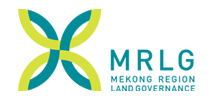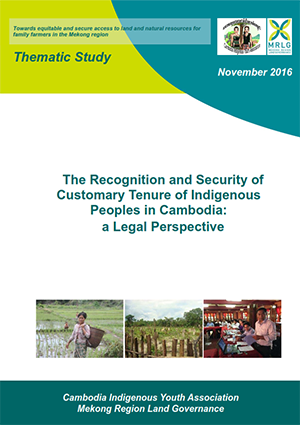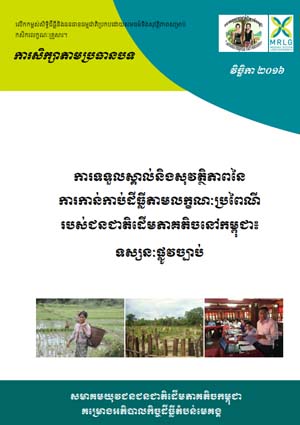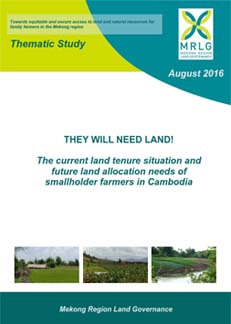Location
Project Description
Land governance is at the center of development challenges in Cambodia, Laos, Myanmar and Vietnam. Governments are revising land policies and practices in order to face these challenges. The project aims to (i) assist the emergence of more favorable policies and practices for securing the rights and access of family farmers to land and natural resources; and (ii) to strengthen the effectiveness of concerned stakeholders through learning, alliance building and regional cooperation.
The MLRG project is based in Laos, with local offices in three other countries: Cambodia, Myanmar, and Vietnam. It supports a wide range of activities (training, exchanges, case studies, focused research, documentation, workshops and seminars) at local, national and regional levels.
The MRLG can support initiatives through three component windows, the first is a learning and advocacy ongoing activity platform supported by National Facilitators in each country. The second two are funded through our Grant Facility open to all stakeholders based on demand and proposals prepared. A short term and immediate response window is the Quick Disbursement Fund (QDF). The second longer term and competitive proposal process is the Innovation Fund (IF). The learning and advocacy activity platform prepared on an annual basis in consultation with stakeholders to organize information collection, analysis, and dissemination, and for horizontal learning and structured learning visits, coaching and pairing, training and organizational strengthening, at the national and regional level.
Members:
Resources
Displaying 71 - 75 of 108The Recognition and Security of Customary Tenure of Indigenous Peoples in Cambodia: a Legal Perspective
This short thematic study challenges the assumption that the legal framework to recognize and protect indigenous peoples’ (IP) customary lands is adequate and that the challenge lies in its implementation. With support from MRLG, a core group of IP NGOs of the Cambodia Indigenous Peoples Alliance (CIPA) held a series of seminars to scrutinize this legal framework, identify gaps and make recommendations for a revision of the supporting legal framework. The thematic study documents this joint reflection.
The Recognition and Security of Customary Tenure of Indigenous Peoples in Cambodia: a Legal Perspective (in Khmer)
This short thematic study challenges the assumption that the legal framework to recognize and protect indigenous peoples’ (IP) customary lands is adequate and that the challenge lies in its implementation. With support from MRLG, a core group of IP NGOs of the Cambodia Indigenous Peoples Alliance (CIPA) held a series of seminars to scrutinize this legal framework, identify gaps and make recommendations for a revision of the supporting legal framework. The thematic study documents this joint reflection.
The Recognition of Customary Tenure in Myanmar
The present study on Myanmar focuses on customary tenure among upland ethnic
nationalities, where colonial and state land administration systems have been poorly integrated,
allowing customary systems to be sustained over time. Much like under British colonial power, the
state has an ambiguous attitude towards customary systems: they are not formally recognized in
law but in practice they are tolerated. Customary land is not titled and therefore at risk of
alienation. The expropriation of many thousands of acres of farmers’ land during the military junta
They Will Need Land
In Cambodia, the majority of the population is still composed of smallholder family farmers. 54% of the total labour force is employed in agriculture. They have access to 3.6 million ha of land, representing 19% of the country’s total land. The rest is divided between large scale economic land concessions (12%), public forests and protected areas, unclassified areas and some infrastructure.
Lao PDR Eucalypt Sector Discussion Paper, Towards Sustainable Forest Management: An Industry Perspective
The eucalypt sector in Lao PDR consists of several large eucalypt developers and a growing smallholder base. This Discussion Paper, developed through a multi-stakeholder process coordinated by Earth Systems, assesses the status of and explores key challenges and opportunities for the sustainable development of the eucalypt sector in Lao PDR.






